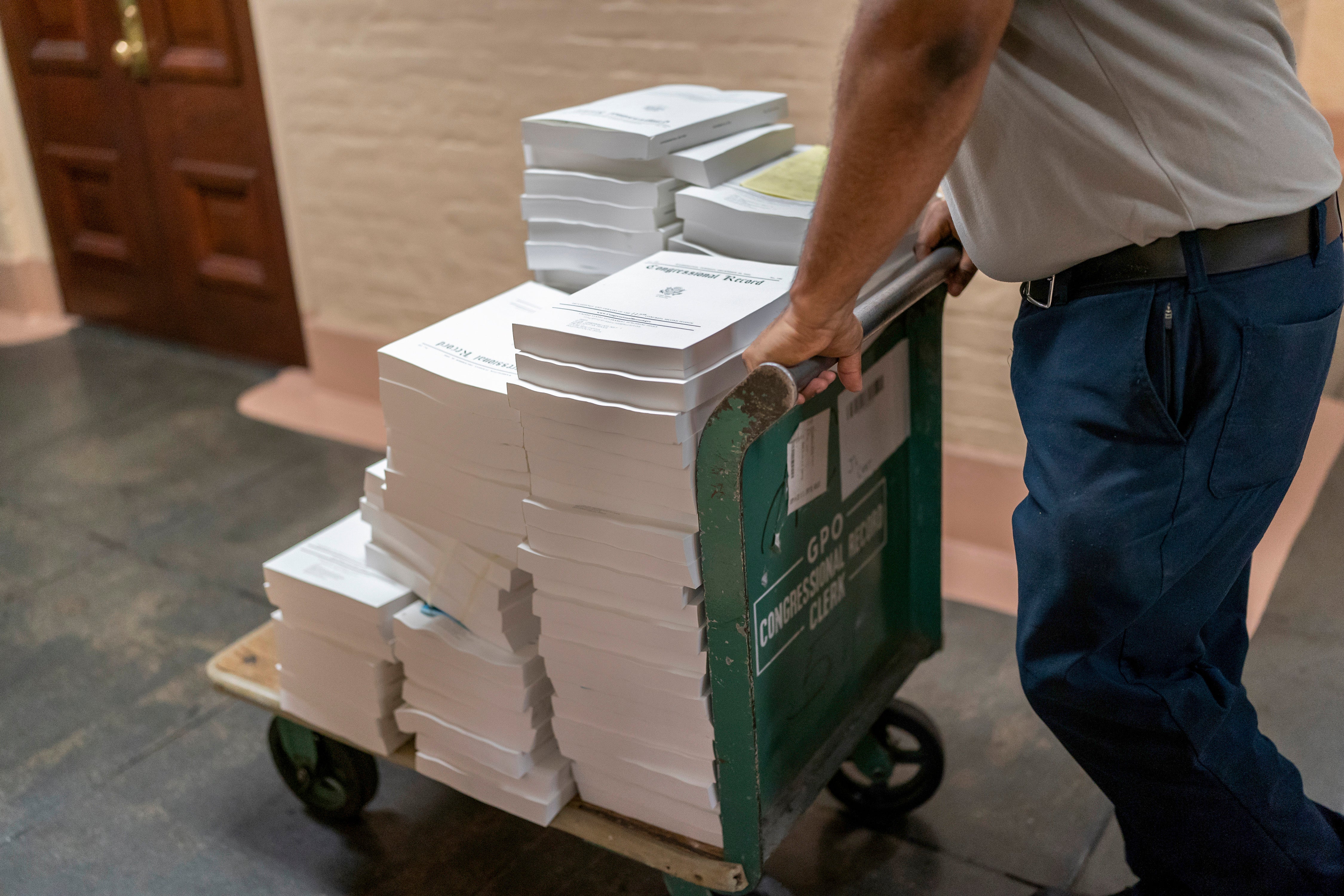Spending bill secures funds for Native American health care
Access to health care for Native Americans across the U.S. will be bolstered with funding included in a government spending bill approved by Congress

Your support helps us to tell the story
From reproductive rights to climate change to Big Tech, The Independent is on the ground when the story is developing. Whether it's investigating the financials of Elon Musk's pro-Trump PAC or producing our latest documentary, 'The A Word', which shines a light on the American women fighting for reproductive rights, we know how important it is to parse out the facts from the messaging.
At such a critical moment in US history, we need reporters on the ground. Your donation allows us to keep sending journalists to speak to both sides of the story.
The Independent is trusted by Americans across the entire political spectrum. And unlike many other quality news outlets, we choose not to lock Americans out of our reporting and analysis with paywalls. We believe quality journalism should be available to everyone, paid for by those who can afford it.
Your support makes all the difference.Access to health care for Native Americans and Alaska Natives will be bolstered with funding included in a massive government spending bill awaiting President Joe Biden’s signature.
The U.S. House passed the measure Friday, avoiding a government shutdown and providing more certainty for a federal agency that delivers health care to more than 2.5 million people.
A coalition of lawmakers from Kansas, Arizona, New Mexico, California and elsewhere fought to include advanced appropriations for the Indian Health Service in the bill, marking a first for the chronically underfunded agency as a way to ensure that services continue in case of potential funding disruptions.
With the legislation, IHS joins other federal health care programs that receive advance funding, including Medicare, Medicaid and the Veterans Health Administration.
"This will ensure that patients are not subject to the uncertainty of the government funding process, saving lives and creating stronger, healthier communities,” Rep. Sharice Davids, D-Kan., said in a statement. “Along with increased funding for education, housing, and economic development, this bill brings us closer to upholding our federal trust and treaty obligations to American Indian and Alaska Native communities.”
Rep. Raul Ruiz, D-Calif., said tribal health facilities are the primary source of health care for Native communities in his district. He called the inclusion of advance funding for IHS a historic step.
IHS, which runs two dozen hospitals and nearly 100 other clinics around the country, repeatedly has been the focus of congressional hearings and scathing government reports that seek reform.
The House Native American Caucus, in a letter sent earlier this month, urged the Biden administration, IHS and tribal nations to work toward authorizing the shift away from discretionary funding.
The lawmakers pointed to a 2017 report by the Government Accountability Office that showed per capita spending for IHS trailed by more than two-thirds the $13,185 spent by Medicare. They said insufficient funding has led to persistent staffing shortages, limited equipment availability, extended wait times and other problems.
More recently, a GAO report issued in March noted that outdated facilities, few inpatient beds and health care provider shortages made the agency's response to the coronavirus pandemic even more challenging.
IHS received more than $9 billion in COVID-19 relief funding — which it used to address both immediate and longstanding needs — but some members of Congress have argued that the agency's overall budget needs to catch up with the actual needs in tribal communities.
Advocates also have argued that every time Congress passes a continuing resolution to keep government operating, IHS has to modify hundreds of contracts to adjust for the available funding.
During the last government shutdown, the National Council of Urban Indian Health noted that urban Indian organizations reported at least five patient deaths and significant disruptions in patient services as some clinics were forced to shut their doors.